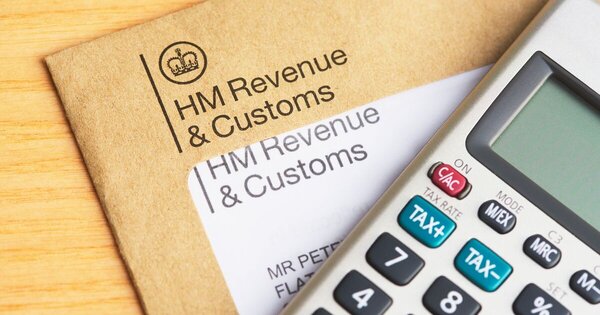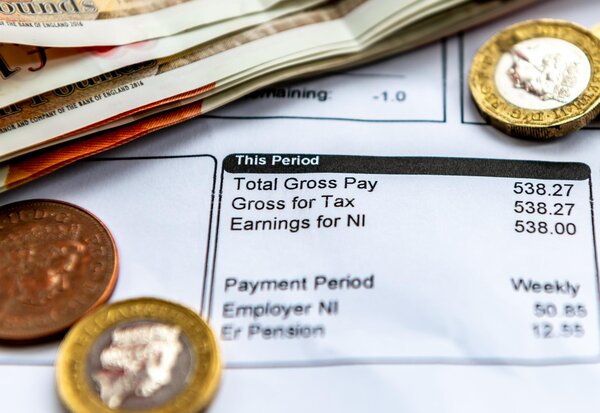Do PAYE Employees Need to Complete a Self Assessment Tax Return?
If you're employed and pay tax through PAYE (Pay As You Earn), you might wonder if you need to bother with Self Assessment. The short answer is: probably not.
For most employees, PAYE handles everything. Your employer deducts tax and National Insurance before paying you, and your tax code accounts for standard income.
Your P60 at the end of the tax year confirms what you've paid. For many workers, that's job done no further action required.
However, life isn't always that straightforward. There are several situations where HMRC will want you to complete a Self Assessment return even if you're a PAYE employee.
When PAYE Employees Must File Self Assessment
You'll need to complete a Self Assessment if you earn additional income over £1,000 that isn't taxed through PAYE. This includes freelance work, consultancy fees, or side hustles.
If you're self-employed (even part-time) or in a business partnership, Self Assessment is required. This applies regardless of how little you earn from these activities.
Property landlords typically need to file Self Assessment when their rental income exceeds £1,000 per year. This includes holiday lets and rooms rented in your own home.
Dividend income above £2,000 or savings interest exceeding your Personal Savings Allowance will also trigger a Self Assessment requirement.
High earners (over £100,000) must file, as will those claiming certain tax reliefs not available through PAYE.
Parents receiving Child Benefit where either partner earns over £50,000 need to file. This is to repay some or all of that benefit through the High Income Child Benefit Charge.

Understanding HMRC Notifications
HMRC might send you a letter telling you to complete a Self Assessment. If you receive this, you must comply even if you think it doesn't apply to you.
You can check your status through your HMRC online account. This shows if you're registered for Self Assessment and any deadlines.
Remember, even without a notification, you're responsible for determining if you need to file. The taxman won't accept "you didn't tell me" as an excuse!
I once assumed my small photography side business was below the threshold for reporting. HMRC eventually caught up with me, resulting in penalties that far exceeded the tax I owed.
Penalties for failing to register and file when required start at £100. These increase the longer you delay, potentially reaching thousands of pounds.
Common Types of Additional Income
Self-employment earnings are the most common trigger for Self Assessment alongside PAYE. This includes freelancing, consulting, driving for Uber, or selling handmade items online.
Rental income from property usually requires Self Assessment. Whether it's a full property or just a room in your home above the Rent a Room threshold, HMRC wants to know.
Foreign income needs declaring through Self Assessment. This includes overseas pensions, interest from foreign bank accounts, or income from properties abroad.
Capital gains from selling assets may trigger Self Assessment if they exceed your annual exemption. This applies to shares, second properties, or valuable collectibles.
Significant savings interest or dividend income above allowances will also require you to file. The thresholds change annually, so it's worth checking current limits.

How to Register for Self Assessment
You can register online through the HMRC website. The process is straightforward but differs slightly depending on your income types.
The deadline for registering is 5th October after the tax year in which you had the income that needs reporting. Missing this deadline can result in penalties.
You'll need your National Insurance number, personal details, and business information if you're self-employed. Have these ready before you start.
After registering, you'll receive a Unique Taxpayer Reference (UTR). Keep this safe as you'll need it every year when filing your return.
Filing Deadlines and Payment Dates
Paper returns must reach HMRC by 31st October following the tax year in question. Many people find this deadline challenging to meet.
Online submissions have a later deadline of 31st January. This gives you an extra three months to get organised, which is why most people file electronically.
Any tax you owe must be paid by 31st January as well. Missing this deadline means interest charges and potential penalties on the outstanding amount.
If your tax bill is substantial, HMRC may require payments on account. These are advance payments toward your next tax bill, due in January and July.
The longer you delay filing or paying, the more penalties stack up. It's best to stay ahead of the game and avoid unnecessary costs.

Final Thoughts
For most people on PAYE, Self Assessment isn't necessary. Your employer and HMRC handle your taxes automatically through the payroll system.
However, additional income streams, high earnings, or specific circumstances can trigger the need to file. When in doubt, check with HMRC directly or consult a tax professional.
Keeping good records throughout the year makes the process much smoother. Set aside time monthly to update your income and expense records.
Remember, it's your responsibility to know if you need to file. The penalties for getting it wrong can be steep and increase over time.
Pie: Simplifying PAYE and Self Assessment Tax
The UK's first personal tax app takes the guesswork out of whether you need Self Assessment alongside your PAYE employment. We automatically scan your income sources and alert you to additional tax obligations.
Our real-time dashboard shows your complete tax position across both PAYE employment and any side hustles. No more wondering if you've missed something important that could trigger penalties.
We connect directly with HMRC systems to ensure you're always compliant. You'll receive timely reminders for registration deadlines and payment dates before they become urgent.
For those who do need to file, we offer a streamlined submission process that's much simpler than HMRC's own system. Our smart checks help prevent common errors that often trigger enquiries.
Curious about whether you need both PAYE and Self Assessment? The Pie app can give you a definitive answer in minutes.











